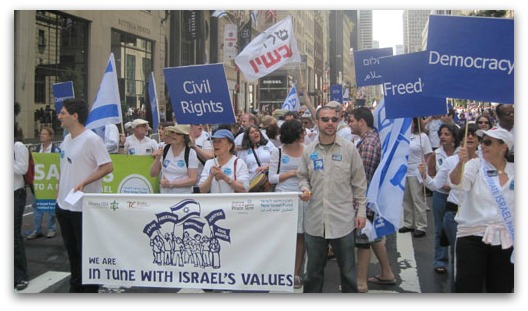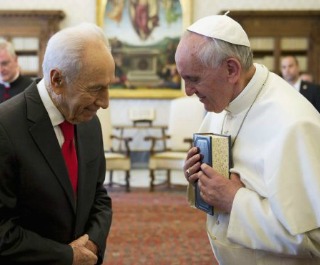--Attorney Nery Ramati, who represents many Palestinian teens, on the separate and unequal treatment between Jewish and Palestinian youth stone-throwers.**
--Attorney Nery Ramati, who represents many Palestinian teens, on the separate and unequal treatment between Jewish and Palestinian youth stone-throwers.**

We will be marching with the group of progressive, pro-Israel organizations committed to Israel's core values, as
laid out in its Declaration of Independence 66 years ago. Our organizations support and advance the ideals of
democracy, freedom, justice, peace and human rights and will be marching loud and proud on June 1.
Come out and make your voice heard! Don’t miss this opportunity to show the world that there is a strong and
vibrant progressive voice supporting Israel. Please register at this
link to receive our meeting point for the parade.


This weekend, Pope Francis will be visiting the Middle East on a historic trip. Many people the world over have been impressed by the humility of this pope, by his loving mien, and his ethical stances. We also are encouraged by his friendship with Rabbi Abraham Skorka and Omar Abboud - leaders of the Jewish and Muslim communities in Argentina - and his determination to demonstrate the normalcy of interfaith friendship.
Note: News Nosh will not be published Friday, May 23rd, and will resume on Sunday.
Quote of the day:
--MK Elazar Stern (Hatnuah) blasts the immunity the World Zionist Organization’s Settlement Division has from the Freedom of Information Law, preventing the scope of the government’s investment in settlements from ever being known.**
--Senior Maariv commentator Ben Caspit says Israel must immediately investigate the killings of the two Palestinian boys.**
 Following the recent increase in “Price Tag” hate-crimes in Israel, including the
desecration of Christian and Muslim houses of worship, we called on American friends of Israel
to join APN in urging the Israeli authorities to seriously confront this ugly phenomenon.
Following the recent increase in “Price Tag” hate-crimes in Israel, including the
desecration of Christian and Muslim houses of worship, we called on American friends of Israel
to join APN in urging the Israeli authorities to seriously confront this ugly phenomenon.
On Sunday, the Anti-Defamation League’s Abraham Foxman published a powerful article in Israel’s Haaretz, headlined “Israel cannot wait any longer to crush price tag attacks.”
This week, Alpher discusses the new "iNakba" app; last week's visit by PM Binyamin Netanyahu to Japan and of President Shimon Peres to Norway; what Israeli chief negotiator Tzipi Livni's meeting in London with Palestinian leader Mahmoud Abbas against a backdrop of surprising progress in the Palestinian drive to form a Fateh-Hamas unity government tells us about the chances for reviving the peace process; and the level of intrigue over the Knesset electing a new president to replace Shimon Peres.
--Dr. Orna Katz, Education Ministry supervisor for the study of history, explains why Israeli schools will be teaching about two popes this week.**
--50 IDF reservists intend to make a protest tent outside the extremist Yitzhar settlement against price-tag attacks.**